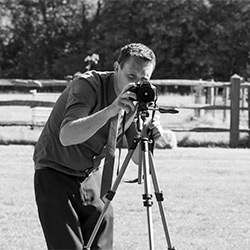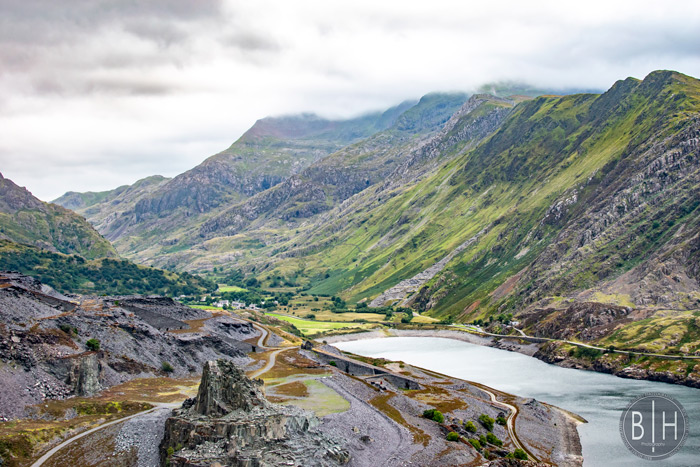 I recently had the pleasure of interviewing a very talented professional freelance Photographer based in Hailsham, East Sussex in the United Kingdom. His name is Ben Hurst and he has an inspirational and diverse body of work, along with a true passion for his craft. With a kind heart, Ben can be found supporting good causes by donating his spare time and talent. He helps a variety of trusts by aiding in their promotional gain. When not behind the lens, Ben will often be enjoying time outdoors and looking for more inspiration for capturing moments in time. As you browse through some of the photos from his collection below, I think you’ll agree that he’s quite accomplished at his craft.
I recently had the pleasure of interviewing a very talented professional freelance Photographer based in Hailsham, East Sussex in the United Kingdom. His name is Ben Hurst and he has an inspirational and diverse body of work, along with a true passion for his craft. With a kind heart, Ben can be found supporting good causes by donating his spare time and talent. He helps a variety of trusts by aiding in their promotional gain. When not behind the lens, Ben will often be enjoying time outdoors and looking for more inspiration for capturing moments in time. As you browse through some of the photos from his collection below, I think you’ll agree that he’s quite accomplished at his craft.
Ben, thank you so much for sharing your experiences with us and thank you so much for all your thoughtful responses. It’s not every day we get a behind the scenes view of someone with such creativity and talent. I can’t wait to see more of your future works!
If you’d like to learn more about Ben, please visit his website. You can also follow him on Instagram and Facebook.
Where is home?
Hailsham, East Sussex United Kingdom
Can you please tell our readers a bit about yourself?
I am a freelance photographer of landscapes, events, portraits, equestrian and business-related images for an array of private and commercial clients.
I like to support local good causes and as such can often be found to give up my spare time helping a variety of trusts for their promotional gain.
When not taking photographs, I spend as much time as possible out on the waters kayaking and cycling across the southeast with the trusty Nikon camera in hand, attempting to find a hidden gem to capture. I am also a keen motorcycle rider, always out and about to and from various locations across England.
After browsing through some of your work, I see that you’re truly immersed in the field of photography. What is it that led you towards photography and how long have you been working in it?
Ever since I was a child I can remember being fascinated by photographs and paintings capturing moments of time, trying to find the story from the image, the emotions of the subjects, seeking to see what that photographer or artist’s intentions were in their work and so forth. It was not until I was at the age of 29 whilst out and about mountain biking which was a new hobby of mine that I began to start taking images of landscapes and wildlife a little bit more seriously, up until this point all I used to do was point and shoot without much care and attention on a small HP compact camera or smartphone etc… In May 2017 I brought my Nikon DSLR and my passion has just evolved so much that I feel naked without it.
Are you self taught or formally taught?
Self-taught through trial and error, watching videos on YouTube and books for tips and tricks and social media for constructive feedback but I have also been lucky enough to know a couple of professional photographers who have encouraged and aided me in any questions I have had.
Regarding your styles of photography, which do you prefer the most (landscape, wildlife, etc…)?
To be honest I have a passion for most styles and at least try and give it a go. I love landscape photography because I can get so lost in the moment and forget about time whilst capturing and showcasing some of Britain’s stunning countryside and coastline. I love shooting people at events, for instance at weddings when you can photograph people in the moment when they are naturally happy or thinking which is my most favoured form of photographing events and portraits.
Regarding your photos, which truly are remarkable, what advice can you offer to those who would like to begin taking these types of photographs?
It is like that old saying goes “…Rome was not built in a day” and this holds true not just with my style of photography but for any style. Persistence and the ability to learn and research into mistakes, play around with the camera settings and angles, in some cases even dropping or raising the camera level 4 inches can make all the difference. I always work in Raw format which is helpful if you need to make slight tweaks in editing and the quality of printing is increased massively. Personally, I either do very minimal editing as I want to show what it was my eyes had truly seen or I go the complete opposite and use shapes and colours to create something completely different, just be creative and love what it is you are photographing.
Is photography your full-time career?
Part-time as I also have another business that still takes a lot of my time up but the end goal is to become full-time in the next 12 – 24 months.
What is your favourite part of being a photographer?
Trying new ideas, being creative and seeing them come off as you had intended or even better than anticipated.
What is the most challenging part of being a photographer?
For me having dyspraxia and reading books on photography can be daunting and hard to grasp whilst my slight social anxiety can make verbal explanations of how I go about my photography difficult and sometimes near impossible.
What do you do to keep your photography fresh and how do you stay motivated?
I try very hard not to go with the masses on what is being photographed so I can separate my work from others, at times this may not be possible so instead, I will seek to find a way of changing such things as angles, aperture and exposure settings whilst just having fun with it all.
What has been the biggest source of inspiration in your work?
For me seeing the vast array of creative images on social media platforms such as Instagram has been one of my biggest sources of inspiration and it can really motivate me to get back behind the lens.
Share with us your favorite image and why.
So I have several images that I favour above others but one that I truly love is this image shot at the end of August 2018 from an abandoned slate quarry mine in Wales up a mountainside looking out to Mount Snowden and its peak which after three hours of climbing up jagged edged steep inclines and walking along hair raising sheer drops and unstable ground, the summit of Mount Snowden revealed itself to me and the valley below took your eye through creating a lovely depth to the photo in what is a lush, rich and stunning part of Britain. It just felt really special to be there at that moment in time where I felt a connection with the landscape that is indescribable. Every time I look back at this photograph I can feel that feeling again, that’s why I love landscape photography.

What do you hope viewers take away from your images?
I hope viewers of my images will feel compelled at the need to come back to take a second look whether they love it or do not understand it, at least I have produced an image that has viewers thinking.
What type of camera(s) do you shoot with? What is your favorite lens?
I currently have a Nikon D5600 DSLR with a 35mm 1.8g prime Nikkor lens which is my most used lens and my favourite for landscapes and portraits for a DX framed camera, 75mm – 300mm Sigma macro lens which I love almost as much and a 28mm – 85mm kit lens.
What is in your camera bag?
My Nikon D5600, three battery’s, my lenses, a tripod and a monopod, 3 memory cards. lens cleaning cloth and a USB battery charger just in case and most recently my GoPro Hero6 is always on me too.
What is your favorite photography accessory?
35mm 1.8g Prime Nikkor Lens
What piece of equipment would you most like to get but don’t have yet?
I would love to purchase a drone.
How important is Photoshop or other image editing software in your final images?
I have both Photoshop and Lightroom but for me Lightroom has become my most important editing software, allowing me to do subtle changes and cropping letting me work with my Raw files beautifully. When I use Photoshop it is predominantly for placing my watermarks on.

Was there a point in your photography journey when you started to feel really good about your work? If so, what did it feel like to get past that “tipping point?”
I am my worst and most difficult critic to please which is hard work at times but when someone buys a print of my work or when I shoot for clients and they are overwhelmed at the end result that makes me think yes, I really feel good about my work and I am able to produce images worthy of people investing. It took 6 months of continuous practice before I started to believe in my abilities, knowledge and skills I had developed.
Are there any areas of photography that you have yet to explore and that you’d like to learn?
I would like to explore drone photography and underwater photography and how it could aid my work.
What do you think the future holds for you? Where do you see yourself in the next few years?
I would like to become a full-time photographer with a few exhibitions in the next couple of years and continuously developing my photography knowledge and skill set along the way. I would love to build a more diverse and large camera kit too.

Leave a Reply